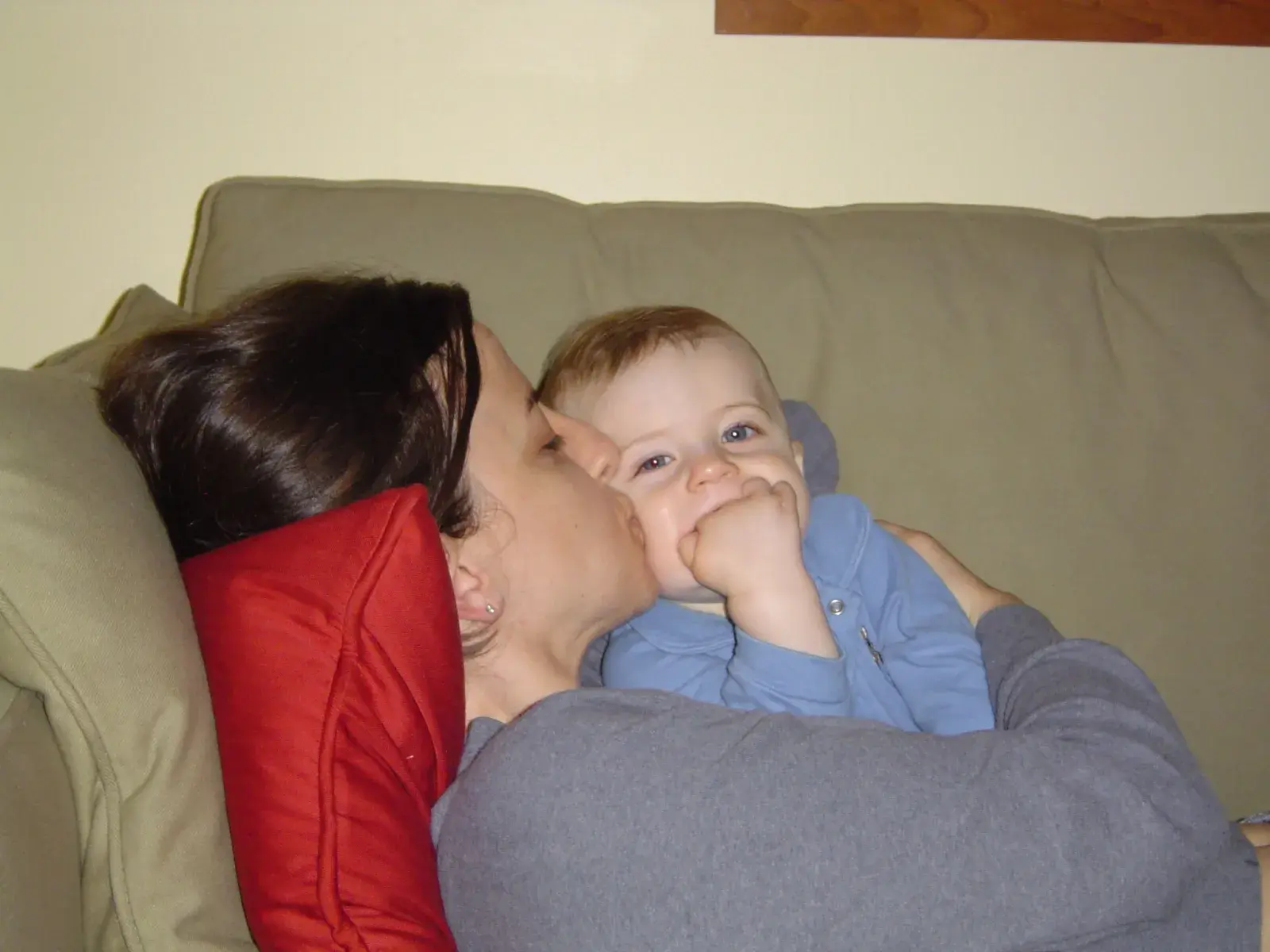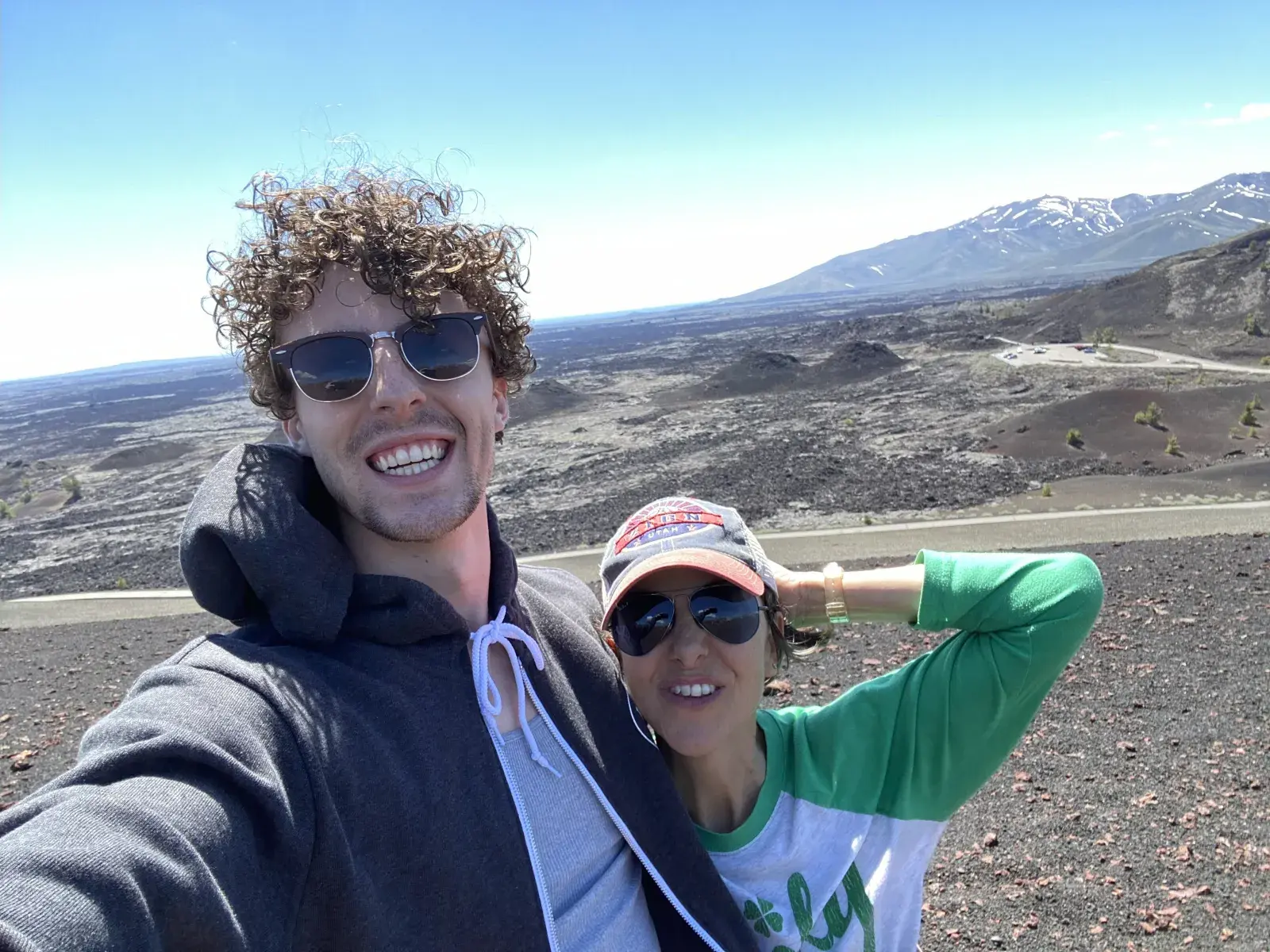My 13-year-old said, “You need to see this.”
He held up his phone and showed me a video of his oldest brother slurring into the camera from a hospital bed. This son’s T-shirt was cinched up over his shoulder to make room for the IV in his arm. His words were barely audible. At the end of the video, he broke down crying.
I wanted to cry, too. Then I wanted the earth to crack open and swallow me whole. I’d just gotten off the phone with my husband, who’d spirited our 18-year-old to the emergency room. Our son hadn’t been sleeping. Things he said made no sense. Doctors diagnosed him with psychosis, possibly drug induced. They considered him a danger to himself, and were in the process of committing him to a psychiatric hospital. While he waited, my son posted on Snapchat. By the time his dad got his phone off him, he’d broadcast multiple videos of his forced hospitalization.
Beginning with those slurry Snapchat videos, my eldest son has chronicled his mental breakdowns over social media. While ill, he’s group-texted hundreds of times in an hour. These weird, offensive comms mortified his siblings. Concerned friends, both mine and his, counseled against him posting rambling, nonsensical monologues, and about his drug use.

After viewing that very first video from the ER, I remember telling my daughter, “When we get through this, I’m going to need you to help your brother clean up his socials.” Four and a half years, five involuntary hospitalizations, a dozen police interventions and thousands of unsettling dispatches later, I’ve stopped worrying about my son alienating future employers — or caring what people think. About him or me.
When he kept getting sick, my life got stripped down to two elemental questions: 1. How do I make sure he gets better? 2. How do I survive this?
For me, the hands-down, most-infuriating presentation of major thought and mood disorders like my son’s is anosognosia, or “lack of insight.” It means the person who’s sick has no clue. It’s why people with brain illnesses believe everyone’s out to get them. Why they quit taking their meds. He was getting F’s in school, driving friends and family away and got arrested for trespassing, yet my son couldn’t comprehend that anything was wrong. The medicines doctors prescribed made him feel like a zombie, so he quit taking them. Instead he self-medicated, which only made his symptoms worse.
Read MoreMy Turn
No matter how much research I did, or which expert I tracked down, the question of how to ensure he got better eluded me. Well, that’s not true. I just don’t like the answer. The answer is: I can’t. The answer is: Only he can. Except he can’t — because of the trick that unpronounceable, five-syllable word above plays on his brain. While I still insist “I can’t” is a stupid, unacceptable answer, a non-answer, I found that it was best for everyone when I devoted more time and energy to the question of my survival.
To survive — no, to live, and to be reasonably OK despite my son having a serious mental illness, I’ve had to wrest even the slightest positive thing from a list of crappy ones. I’ve had to take heart that even though he was 2 ½ hours late getting to outpatient treatment, hey, he got there.

In this begrudging, glass-half-full spirit, I started using my son’s unseemly social media posts as a kind of early detection system. My youngest is usually the person who notices something’s up. He’ll ask, “You seen the latest post?”
Or my little sister will message me: “Is everyone doing OK?”
My spine straightens all by itself. And I know. I prepare — as much as one can prepare to deal with someone in a drug-induced psychosis or manic episode. When my son is definitely in an episode, I use his socials to monitor his symptoms, try to determine if he’s exacerbating them with drugs, or leveling out, if it’s time to involve the police. For a week after New Year’s, I checked his Instagram first thing every morning to make sure he hadn’t killed himself.
The biggest upside of my son being so public about his illness has been not having to hide its effects on me, or our family. Feeling free to speak about what I’ve been through didn’t make it easy, or enjoyable. It simply allowed others to help me bear my impossible load.

Before his most recent hospitalization last December, my son sent dozens of group texts to everyone I know. He started a special text chain with four of my closest friends and me, accusing me of terrible things. I texted each woman privately to apologize. I got back:
“You have NOTHING to be sorry for.”
“Praying my face off.”
“I love you so much!”
“What can I do?”
No one said, “Stay away from me.”
No one ever has.
That was less than a year ago, though it feels much longer. My son is doing better. His progress has been halting, but he’s committed to his recovery and a better future. It nearly brings me to tears every time I see him making music and getting to class. Still, I don’t kid myself about what could lie ahead.
Now that my son’s healthier, he stays off social media.
That’s probably a good thing, but I’ll always be thankful for his bursts of social media oversharing — not for the posts themselves, but for the much-needed support they brought our family.
All views expressed in this article are the author’s own.
Do you have a personal essay you want to share with Newsweek? Send your story to MyTurn@newsweek.com.

